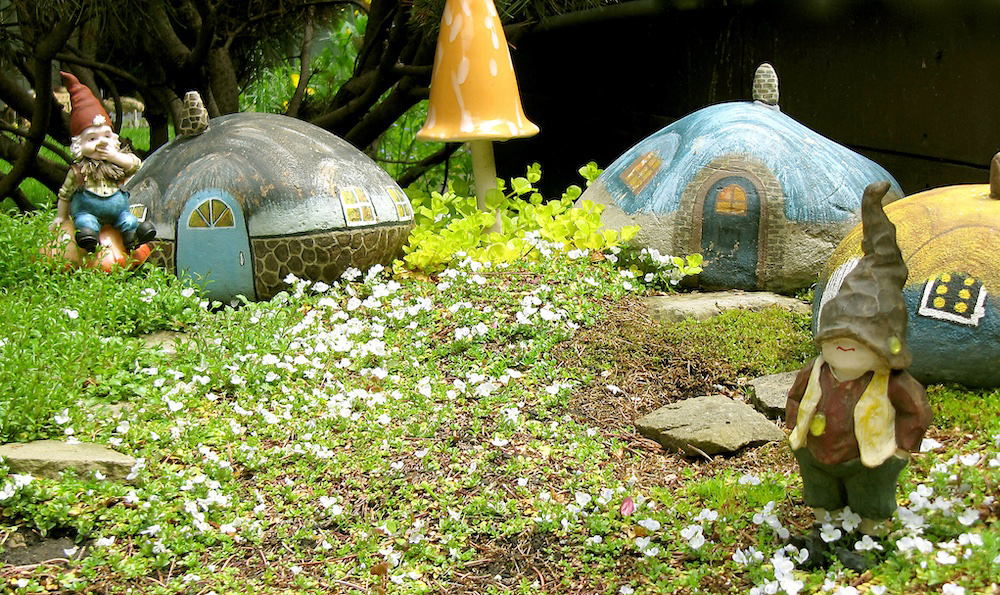
Common name: Creeping speedwell Latin name: Veronica repens Plant type: Groundcover Plant size: 1″ high, spreading 6-12″ USDA Hardiness Zones: 2-8 Cultural needs: Normal or sandy; well drained, moist soil; full sun to part shade Dwarfs and dwarf trees won’t be obscured when surrounded by this mat-forming creeping speedwell. Here, in full bloom during June […]
Read More…
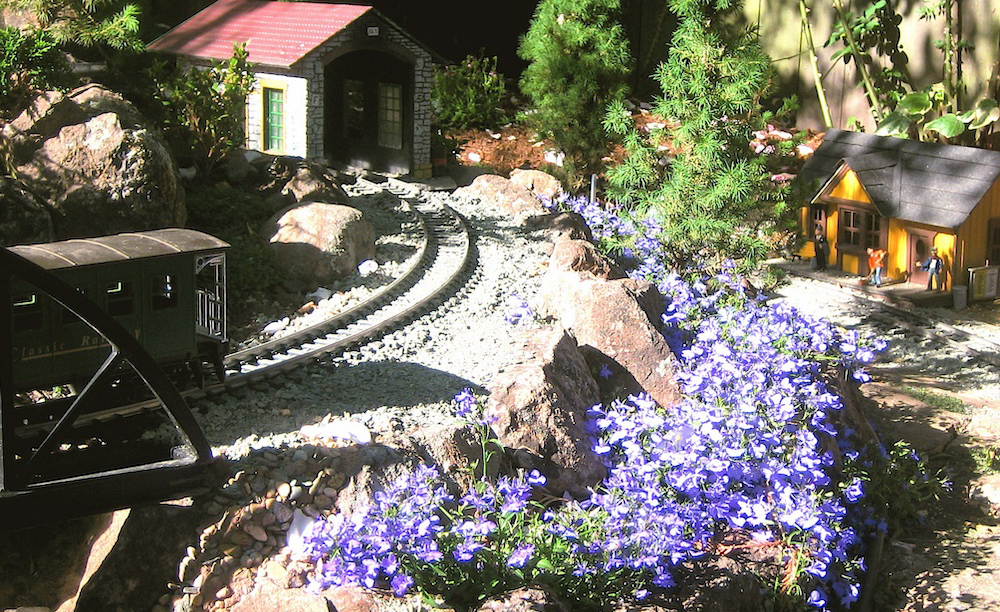
Common name: Trailing lobelia, edging lobelia, annual lobelia Latin name: Lobelia erinus ‘Riviera Sky Blue’ Plant type: Annual Plant size: 8-10″ high and spreading USDA Hardiness Zones: 10-11 for overwintering, all Zones as an annual Cultural needs: Moist soil, sun or part shade, fertilize regularly for continuous blooming So few miniature plants have such a […]
Read More…
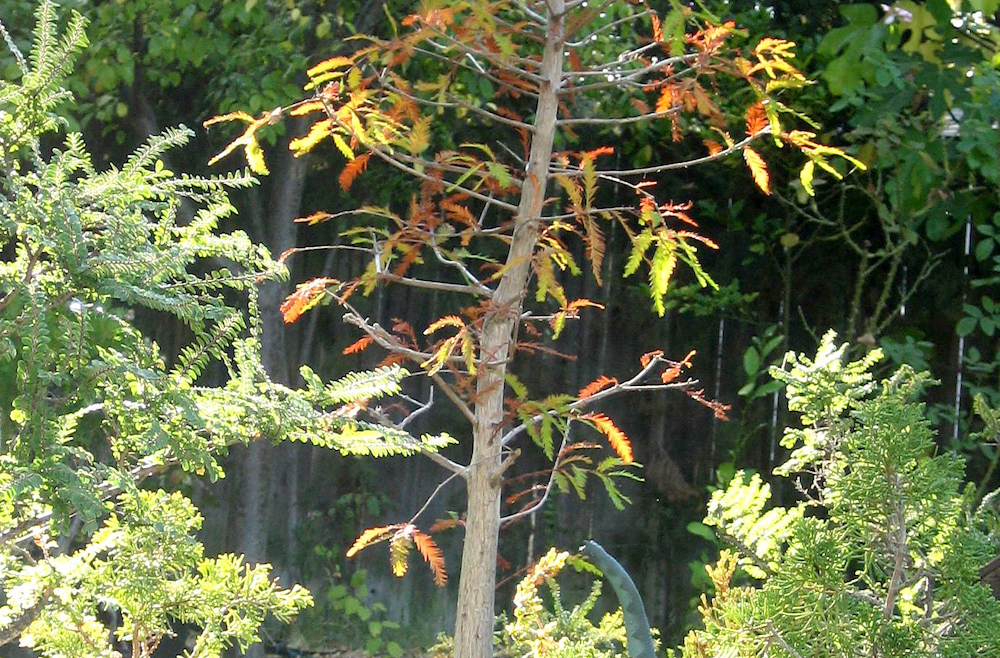
Common name: Dwarf baldcypress, dwarf swamp cypress Latin name: Taxodium distichum ‘Peve Minaret’ Plant size: 6-10′ high by 3′ wide in 10 years USDA Hardiness Zones: 5-11 (marginally in Zone 4) Cultural needs: Moist, acidic soil; sun T.d. ‘Peve Minaret’ is a dwarf variety of the magnificent swamp cypresses of the Florida Everglades. The dwarf […]
Read More…
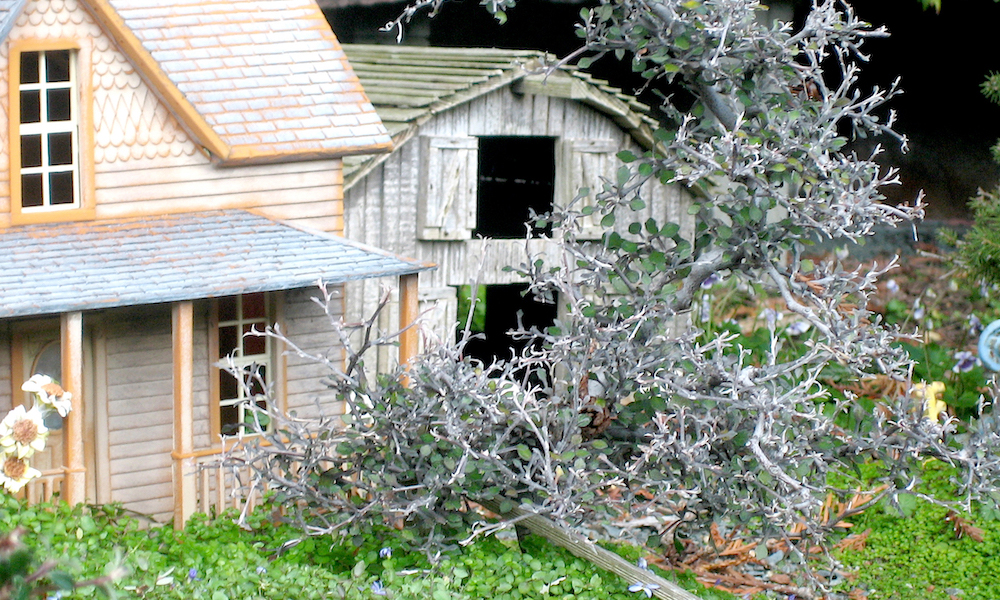
Common name: Skeleton bush, wire-netting bush Latin name: Corokia cotoneaster ‘Little Prince’ Plant size: 3′ high x 18″ wide, easily kept smaller Plant type: Shrubs and small trees USDA Hardiness Zones: 7-10 Cultural needs: Sun or shade, medium water needs, good drainage, tolerates alkaline soil The dark, almost black, twisting stems of Corokia cotoneaster ‘Little […]
Read More…
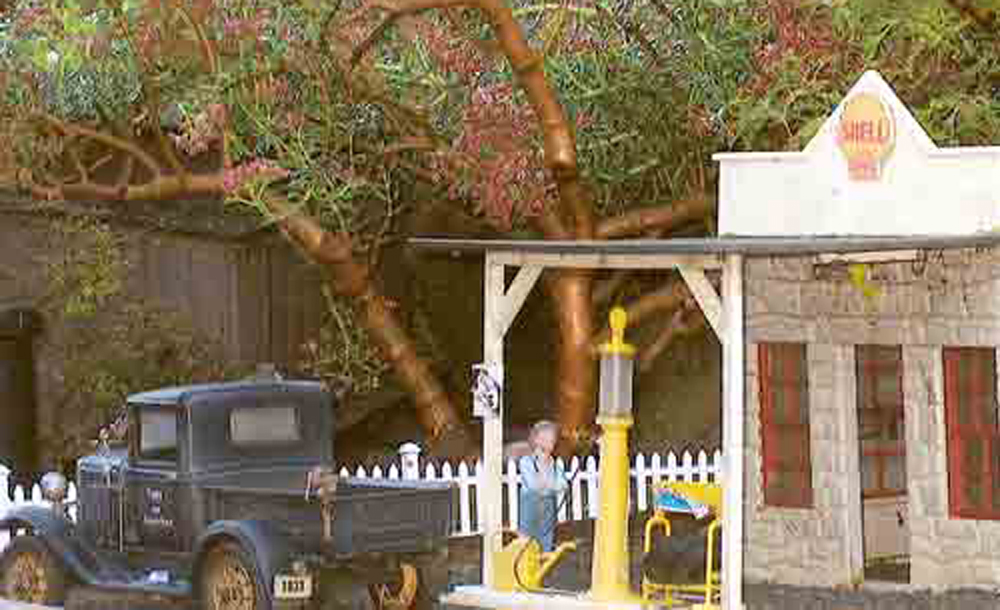
Common name: Ken Aslet crassula Latin name: Crassula sarcocaulis ‘Ken Aslet’ Plant size: 20″ high x 20″ wide Plant type: Shrubs and small trees USDA Hardiness Zones: 9-10 Cultural needs: Sandy soil, sun or part shade Native to South Africa, this close relative of the jade plant makes a showy trackside tree, especially when it […]
Read More…
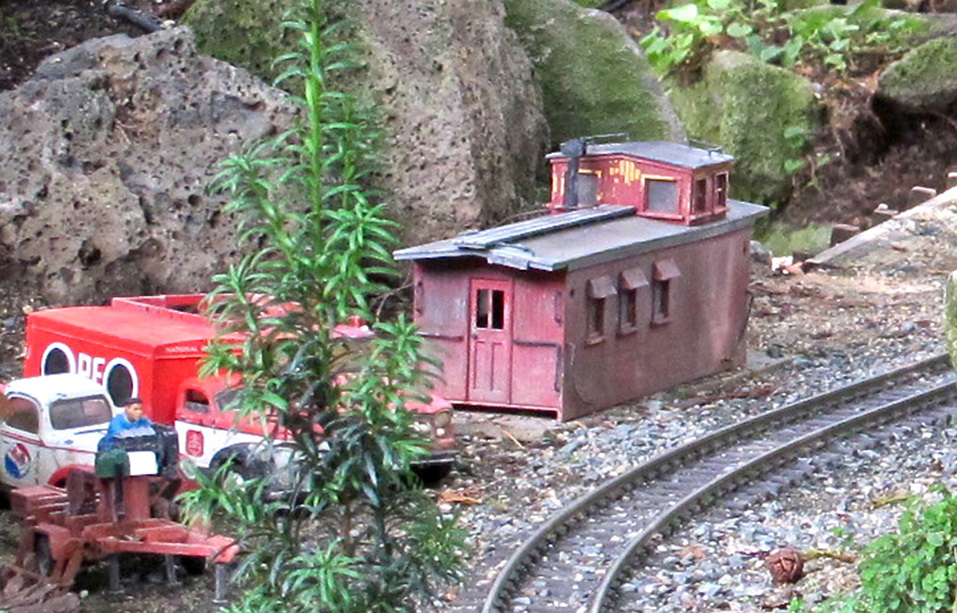
Common name: Irish yew Botanical name: Taxus baccata ‘Fastigiata’ Plant type: Dwarf conifer USDA Hardiness Zones: 6-9 Cultural needs: Well-drained soil, sun or shade Plant size: 6-8′ high x 2-3′ wide in 10 years, easily pruned Discovered in Northern Ireland in 1780, Taxus baccata ‘Fastigiata’ is an easy-to-grow evergreen conifer for railroad gardeners. Like a […]
Read More…
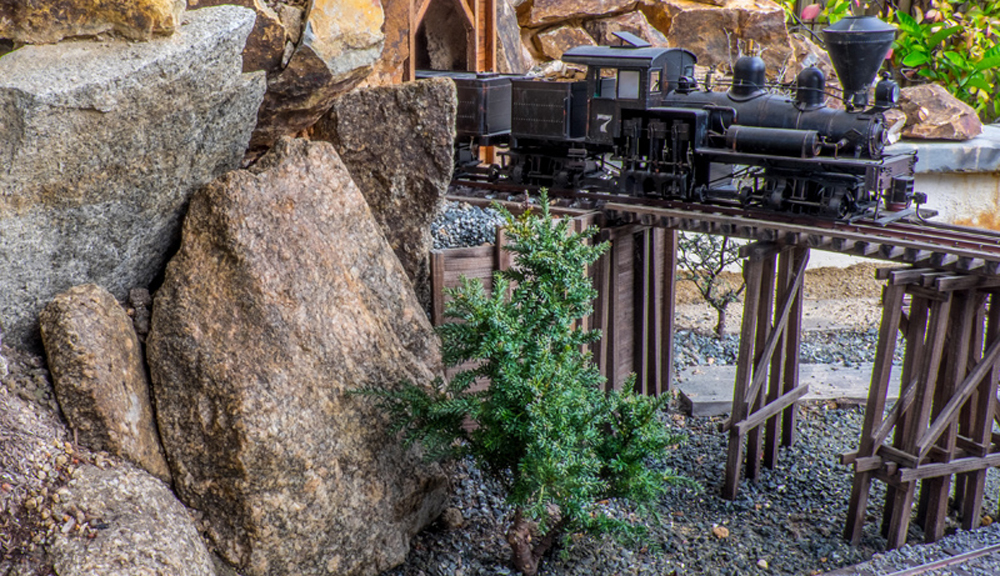
Common name: Red Tip mountain plum pine Latin name: Podocarpus lawrencei ‘Red Tip’ Plant type: dwarf conifer USDA Hardiness Zones: 7-9 Cultural needs: moist, well drained, neutral or slightly acidic soil, sun to full shade Plant size: 20” high x 28” wide in ten years Would you like the conifer-tree look, but you’re stuck with […]
Read More…
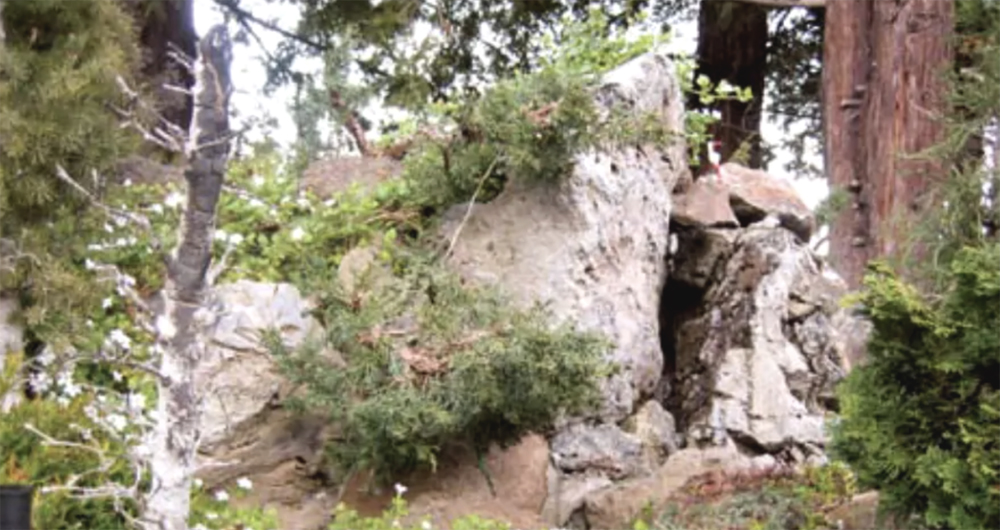
Common name: Shimpaku juniper Latin name: Juniperus chinensis ‘Shimpaku’ Plant size: 6″-12″ USDA Hardiness Zones: 5-9 Cultural needs: Sun or part shade, any well-drained, slightly acid soil The Shimpaku juniper was first discovered in mountainous Japan a little over a century ago. Due to over collecting for bonsai subjects they have all but disappeared in […]
Read More…
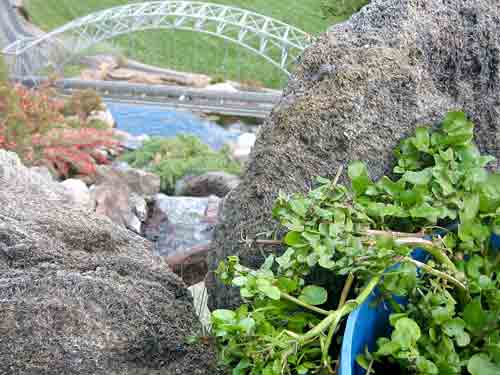
Common name: Watercress Latin name: Nasturtium officinale, N. microphyllum Plant type: Water plant
Plant size: 4″ high and spreading rapidly USDA Hardiness Zones: 4-10 Cultural needs: Moist soil or floating on water, sun or shade Watercress is a plant for many purposes in a garden railway. To quickly green up your pond, watercress, with its bright, […]
Read More…
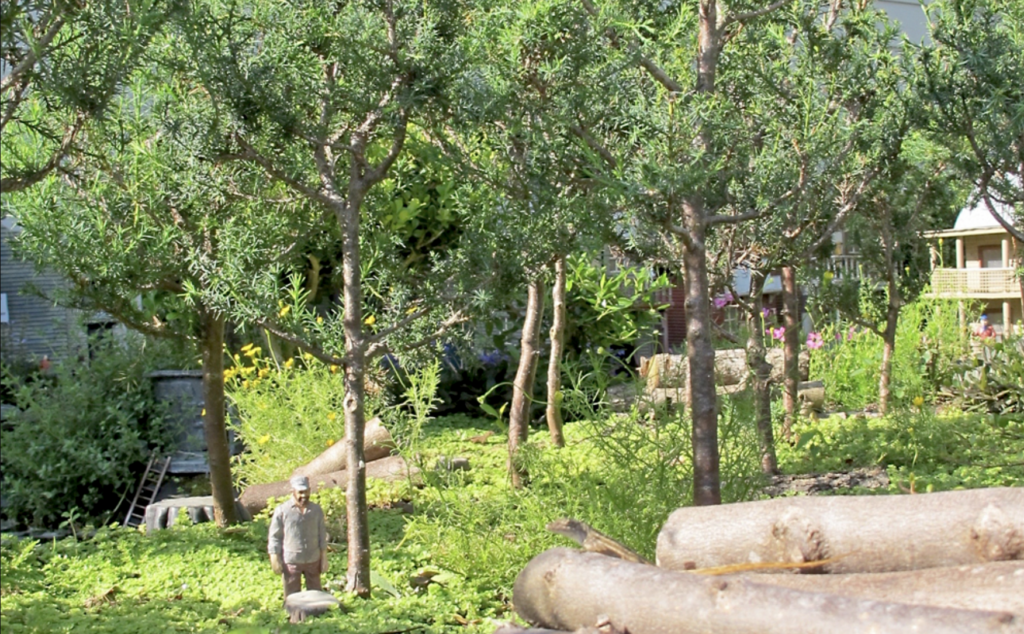
Common name: Eastern red cedar, Virginian juniper, eastern juniper, red juniper, pencil cedar, or aromatic cedar Latin name: Juniperus virginiana Plant type: Shrubs and small trees USDA Hardiness Zones: 2-9 Cultural needs: Moist, well drained, neutral, or slightly acidic soil; full sun Plant size: 40′ unpruned but easily kept under 2′, with a width half […]
Read More…
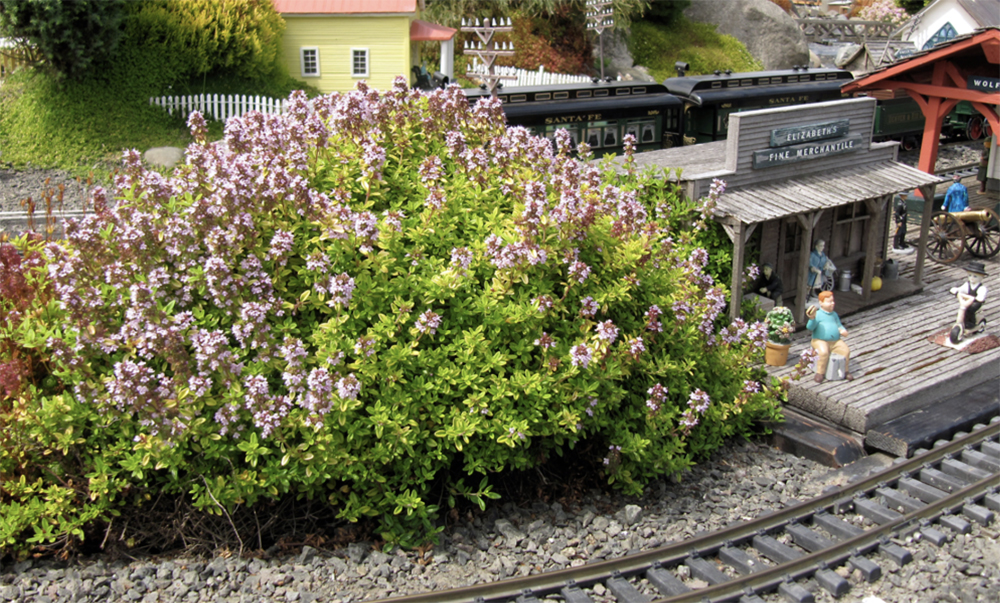
Doone Valley lemon thyme Common name: Doone Valley lemon thyme
Latin name: Thymus citriodora ‘Doone Valley’ Plant type: Groundcover
USDA Hardiness Zones: 4-9 Cultural needs: Well-drained soil, full sun Plant size: 3″ high x 18″ wide Doone Valley thyme’s evergreen leaves shine like the sun, with yellow edges that often cover the whole leaf with […]
Read More…
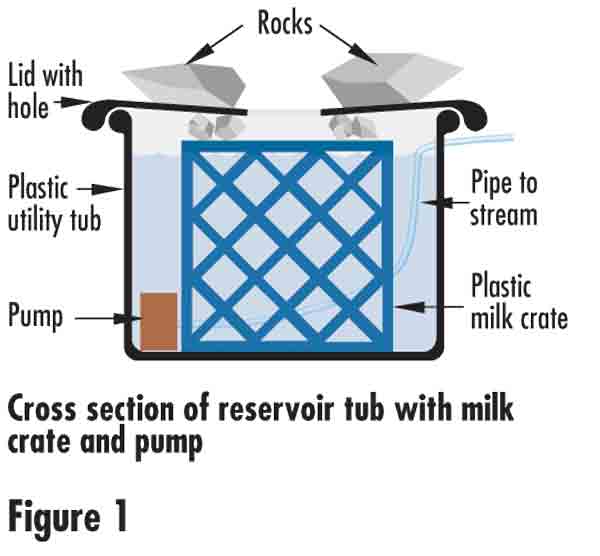
How to build a pondless waterfall: In considering the infrastructure of garden railways, waterways come high on the list of those items that are best built early in the process. It’s hard to beat the sight and sound of moving water or the mirrored allure of a pond. However, I won’t deal with ponds in […]
Read More…












